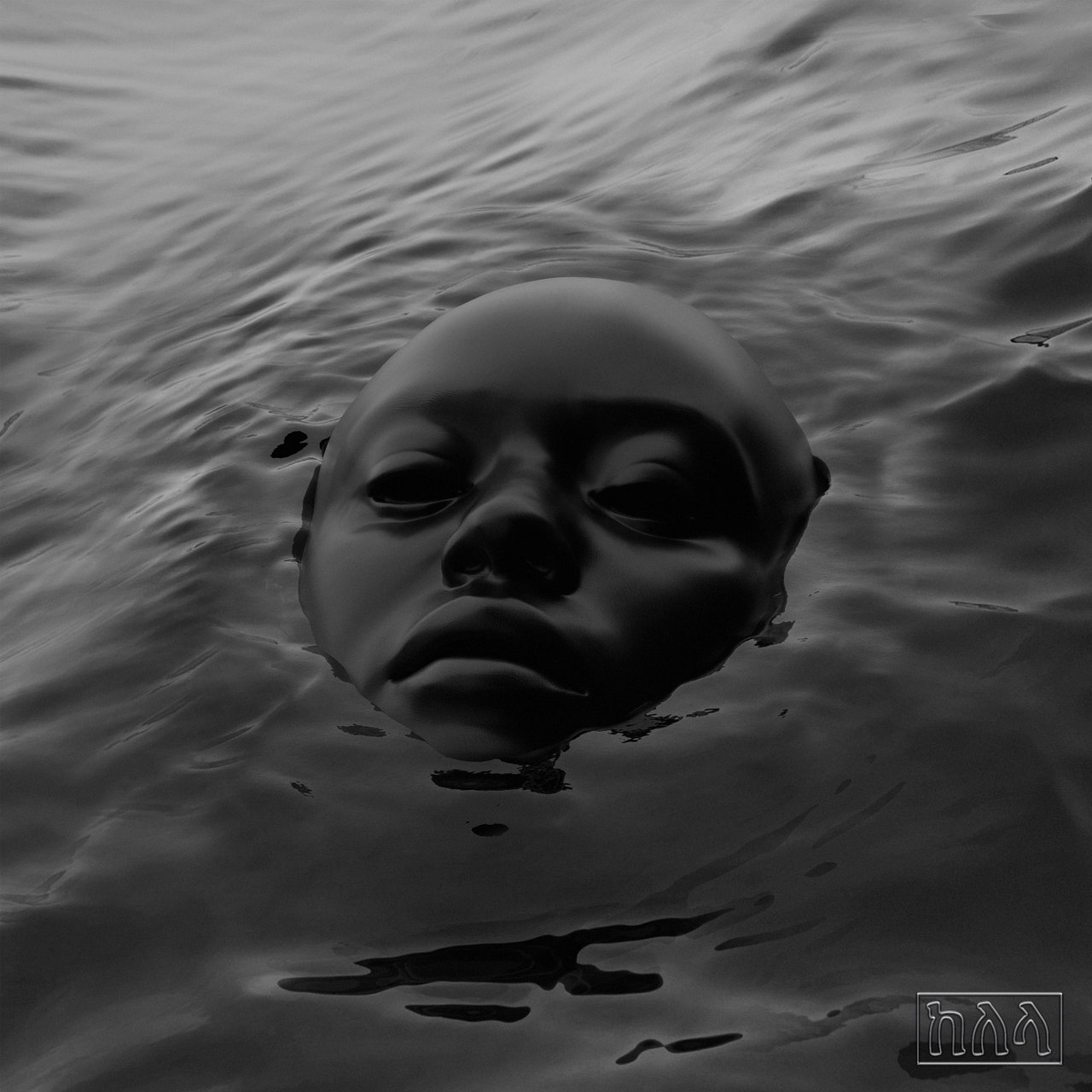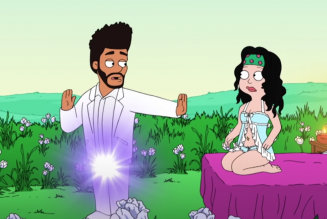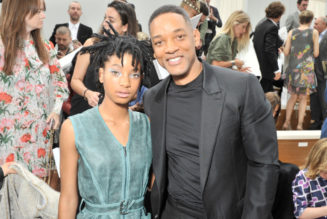In the six years since the groundbreaking Take Me Apart, Kelela’s vaporous body music has become a singular force. The insatiable allure of new romance, power dynamics that shift like quicksand, celestially minimalist club and R&B: This is the strong gravitational pull of Kelela’s world. Her preternaturally relaxed aura has become such a quietly commanding force that when she went relatively silent on social media after Take Me Apart, fans clung to her occasional, errant likes on social media as crucial signs of life.
But while her music was gaining a life of its own, Kelela herself spent time battling writer’s block, reclaiming her privacy, and re-establishing boundaries. The global pandemic and Black Lives Matter uprisings in 2020 sharpened her intention as she worked: Sick of dealing with the lip service paid to Black women and widespread misogynoir, she studied and reflected on films, essays, and works by academics and artists such as bell hooks, Kandis Williams, and Shaadi Devereaux. She sent a document to colleagues and friends asking what they’re doing to advance Black women and other marginalized people she shares community with; it led to a personal and professional restructuring that Kelela called “an act of self-care.” “Ultimately I’m working to be in alignment with myself. What that has looked like for me is speaking up to make sure I’m in partnership with Black people.”
The period of introspection casts Raven, Kelela’s second full-length, in a newly energized, restorative light. After anatomizing fractured relationships on Take Me Apart, Kelela centers queer Black womanhood through blasts of heated dance music and ambient comedowns. A new calm surrounds her intricate sound, forming an oasis from the problems of everyday life while simultaneously breaking down those problems with clarity. Listening to Raven leaves one breathless at the scope of Kelela’s enveloping music, offering several vantage points from which to witness new, head-spinning takes on R&B.
A roster of electronic producers and kindred spirits bring Raven’s innovative sound to life: Asmara of Nguzunguzu, LSDXOXO, Bambii, Kaytranada, Junglepussy, and more co-conspirators pepper the album with winding rhythms that draw from drum’n’bass, garage, Baltimore club, and further strains of Black electronic music. Built as a continuous mix, the record plays like a night out at a hazy, secluded club whose corners are primed for a heady blend of seduction and epiphanies on the dancefloor. The midpoint highlight “Contact” places Kelela’s delicate melodies over a scuffed jungle beat and warped synths that give way to a Dionysian rush of lust. Raven thrives in those straightforward dance moments: “On the Run” is driven by a dewy dancehall groove, a natural element for Kelela’s self-possessed, sexy come-ons. The breakbeats and brisk guitar that drive “Missed Call,” in line with a spate of artists working with the ’90s club hallmarks recently, give an added charge to the album’s front half.
To establish a more tranquil, soul-bearing afterglow, Kelela recruited OCA, the ambient group comprising Yo van Lenz and Florian T M Zeisig. (She previously included their sparse, abstract music on her 2019 Aquaphoria mixtape, a precursor to Raven’s drifting, pensive moods.) Yo van Lenz and Zeisig limn the album with pockets of reverb and minimalist sound design: On “Divorce,” co-written with Shygirl and the figurative painter Janiva Ellis, glassy synths and a buzzing bassline give Kelela an empty space to fill, delivering one of the most peaceful vocal performances on the album for an expression of brittle self-reflection. The slow-building, dreamlike “Holier,” meanwhile, is submerged in muted, rattling bass, with spare synth notes that weave in and out around Kelela’s clear-eyed resolve: “Though it troubles my heart/Don’t want to cover the scar,” she sings as though floating at zero gravity, “So I go where they hold me down.” It’s one of several instances on the album that speaks to nurturing self-care by standing in and with the community that grounds you when you need it most.
Raven’s lyrics circle images of water, from mist and pouring rain to stormy clouds and dripping sweat. The album’s connective tissue is found in the sound of rushing waves, or a sharp inhalation breath after coming up from the water (“Divorce” even ends with what sounds like the steady beep of a diver’s sonar radar fading out of earshot). For Kelela, water becomes cathartic, almost baptismal. The title track is the album’s panoramic zenith, building on keys and an oscillating synth line: “Through all the labor/A raven is reborn,” she sings, shifting the prophetic symbol of death into one of reinvention. Kelela’s graceful interrogations of her emotions have always been one of her music’s greatest pleasures, but here it leaves a long-lasting impression. The song accelerates into an ecstatic breakdown with fragmented, strident synths and pressurized beats that break through with the rush of a barreling subway car. It’s freeing and exhilarating, a rattling shock to the system that channels a deep well of irresistible power.
Kelela’s command over her voice is more dexterous on Raven, leaning into serpentine, delectable melodies. She metastasizes emotions with subtly complex vocal phrasing and aching background ad-libs, outfitting Raven with a velvety, laidback effortlessness. On the standout two-hander “Closure,” she sings about still holding on to a needling infatuation after being ghosted in an ethereal falsetto over plucked tones and a warped undertow before a guest verse from Newark rapper Rahrah Gabor, who injects the song with a slick, instantly memorable jolt of energy (“You like ’em brown,” Gabor spits, “You ain’t another Clayton Bigsby”). Kelela is a master of tension and release, giving a swift dose of propulsive euphoria before gently ebbing back. The luminous “Sorbet” is the best example of the latter, all slow-motion lust with airy backing vocals and a hypnotic, swirling beat. “Nowhere to go now/Let it melt away,” she pleads as the song reaches its transcendent, reverb-soaked climax.
Raven begins and ends with a sigh. “Washed Away” and “Far Away” are Raven’s axis points, lifted by Kelela’s improvisatory vocals and a resounding synth line that form a beatific prayer. They exemplify the album’s delicately sublime appeal—Kelela’s music is hydration for the soul, seductive and relatable even as she continues to refine and evolve her sound. You can be drawn in by Raven’s all-encompassing atmosphere, but it’s even better to lose your whole self in it.
All products featured on Pitchfork are independently selected by our editors. However, when you buy something through our retail links, we may earn an affiliate commission.








